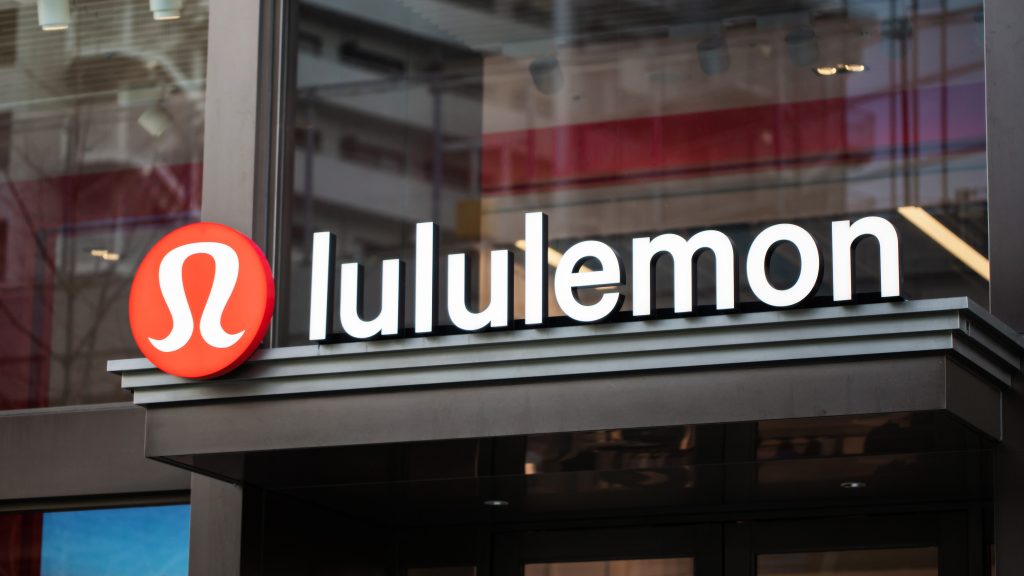Current and former Lululemon employees accuse the brand of racial discrimination
Amid formal complaints against Lululemon, current and former employees speak out about the brand known for its white, upper-middle-class aesthetic.
Lululemon, for many, is synonymous with the upper middle class, so much so that it’s routinely mentioned in articles with headlines about being “basic” or decolonizing wellness. According to a report published Tuesday by Business of Fashion (BoF), the athleisure luxury brand’s aesthetic is so strong that a location of the brand’s retail store in Chicago’s Hyde Park neighborhood, which opened with a 16-member all-Black staff in 2021, was deemed “off-brand” by visiting white patrons. In August 2023, the location was abruptly closed for dubious reasons, with most of its workforce laid off.
During the two years the Hyde Park location was open, the store, which opened amid a series of Lululemon pop-ups, garnered positive feedback for its customer service and sales. However, speaking with BoF, when the store’s manager, Michael “Muffy” Collins, first pitched opening the location with an all-Black staff, he was encouraged to hire a mostly white and Asian staff to reflect the predominant student body of the nearby University of Chicago, rather than the predominantly Black business district in which the store would be situated. (The location has since become a Black-owned art gallery.) Nonetheless, considering its success, it still came as a shock when the brand announced it was closing the location.

Now, at least six of those employees, including Collins, have filed complaints against Lululemon with the Equal Employment Opportunity Commission, alleging racial discrimination.
Collins told BoF he initially joined the company because he wanted to offer the brand “a different point of view.” He wasn’t deterred when, despite his lengthy background as an athletic store manager at various companies, including Champion and DTLR, he claims he endured eight rounds of interviews. He told BoF he later learned a white manager with less experience at Chicago’s Lincoln Park location went through only two interviews, a claim that has yet to be confirmed.
Regardless, Collins pushed forward. In May, he was shocked to learn that the brand intended to close the location, citing revenue as the reason. The location reportedly came $2.4 million under the target, a figure he claimed he wasn’t aware of. Additionally, the Hyde Park store was opened as a “create and grow” location and thus would have had a lower revenue goal than other stores ($5.9 million, according to BoF). Collins also alleges the brand has a history of misleading Black employees; his complaint claims the brand would also lie to employees about the availability of other roles.
Collins further alleges Black employees working at other Chicago-area Lululemon stores were told they would “be a better fit at the Hyde Park location.” Collins told BoF he wasn’t authorized to add staffers despite recommendations to join his team, a move he feels was intended to force those employees out of the company.
Finally, when the company’s DEI lead at the time took a call with Collins to hear his growing concerns, he told her, “I don’t feel welcome in this company as a Black straight male.” She allegedly replied, “That’s unfortunate; I hope it gets better.”
On Aug. 10, Collins said he was asked to sign a voluntary resignation form by a “people and culture” manager, who told him they had been in contact with the DEI lead. Collins told BoF he feels the request was retaliation by the brand in response to him expressing his discomfort.
The report indicates that what happened in Chicago potentially reflects a wider culture within Lululemon.
The publication spoke to 14 current and former Lululemon employees, including sales associates, global ambassadors, and corporate managers in the U.S. and Canada, who described a corporate culture that is “unwelcoming” to Black employees. There are accounts of leaders “regularly” using stereotypes to refer to employees of color, regional managers referring to Black employees as “you people,” barriers to career advancement not experienced by white peers, and retaliation for speaking out, including termination.
A spokesperson for Lululemon confirmed to BoF that the company was taking the allegations “very seriously” and that they “do not reflect the culture” the brand has built.
The Hyde Park Lululemon opened just months before the brand launched its diversity, equity, and inclusion department, known internally as IDEA: Inclusion Diversity, Equity, and Action.
IDEA aimed to increase staff diversity, expand training and development around diversity and inclusion, and establish “ongoing dialogue” between employees and Lululemon’s chief executive, Calvin McDonald. The company hired Stacia Jones, a corporate lawyer who previously headed diversity efforts at Abercrombie & Fitch, to lead a team of roughly 20 with an annual budget of $5 million. Jones was the DEI lead Collins claims was dismissive of his concerns.
Some employees feel IDEA was just a fad, like many other DEI initiatives that have yet to yield any meaningful change within the fashion industry at large. Employees who worked within or with IDEA reported they risked retaliation if they criticized the company’s approach to DEI.
Speaking with BoF, Miya Dotson, a former IDEA manager, recalled her supervisor telling her before she started, “IDEA is a wave in the company, and … we just need to ride the wave until there is something else.”
Konesha Armstrong, the Hyde Park store’s operations lead, said her experience working at Lululemon was like “smoke and mirrors.”
“[Lululemon] makes you feel like it’s going to be supportive, and you’re not going to be a part of the history of micro-aggressive behavior,” she said. “And it just isn’t the case.”
Lululemon could not be reached for comment by theGrio by time of press.
Never miss a beat: Get our daily stories straight to your inbox with theGrio’s newsletter.


